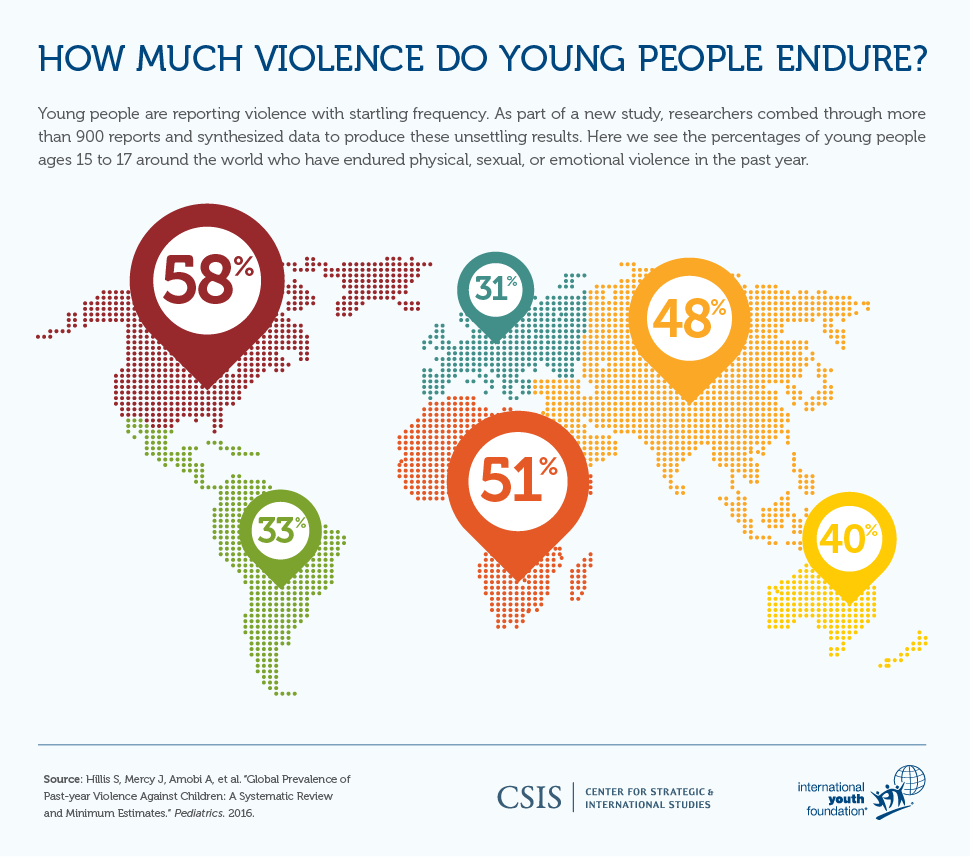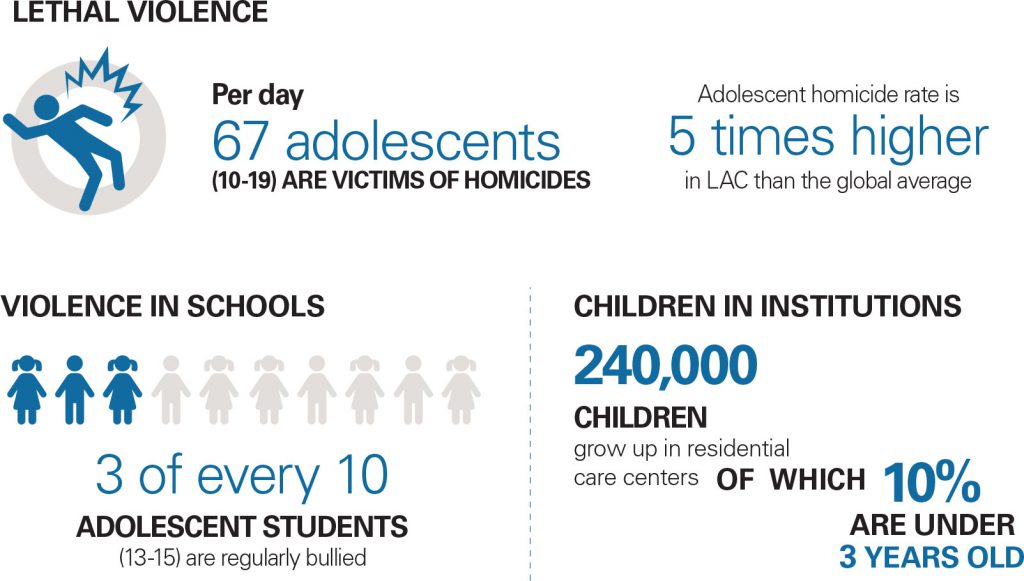The yearly global cost of violence stands at $13.6 trillion, or 13.3% of global GDP.
That’s $5 per person, per day, every day of the year.
In addition to the financial cost of violence, the reports on the number of children affected by violence is shockingly high. In 2012, interpersonal violence resulted in approximately 475,000 deaths the world over.
Violence is a global epidemic.

The Conscience Organisation has partnered with UNICEF to tackle this issue in one of the most violence-affected regions in the world, Latin America and the Caribbean. The four-year campaign will challenge existing social norms and ignite debate about what is acceptable in everyday society.
Violence and violent behaviour stems from countless attitudes and learned behavioural frameworks, which differ from country to country, community to community, and person to person. We’ll be working with the regional office to empower the different UNICEF Country Offices to localise and tailor campaign messaging to fit their cultural expectations and background, giving the regional campaign local impact.
Key issues we’ll be focused on include gender norms and sexual violence, corporal punishment in schools and the home, gang and gun violence amongst adolescents, and working to change social perceptions of the potential for rehabilitation of violence-affected youth.
“Violence, and violence against
Clive Burcham, CEO and Founder of The Conscience Organisationchildren, is an intergenerational issue that affects individuals, families and communities the world over. It is an honour to be working with UNICEF to help illuminate and solve this problem. This is an issue close to home for many of us. We feel inspired to give this project all our passion.”
While countries in Latin America and the Caribbean have marked differences in the types of violence they experience, across the region violence is socially pervasive and increasingly normalised. While numbers never paint the full picture, sometimes they can help set a scene – 42 of the 50 countries with the highest rates of violence are here, as well as the five countries with the highest rates of adolescent homicide.
A blanket solution might not be possible, but it’s clear that action needs to be taken to address the attitudes towards violence and begin to change community and individual behaviours.

Violence of any sort creates a devastating ripple effect. The issues, themes and patterns may be global, but many of the characteristics and nuances of violence are specific to certain regions, communities and cultural groups. In order to be effective, the educational strategy needs to be reflexive, adaptable and contextual. For this project, that means it needs to work across borders and cultures to the benefit of the entire region.
The effects of violence can be life-long. These effects may be cognitive or emotional. This not only affects an individual’s personal development, but also their interaction with the outside world. Through both a humanitarian and economic lens, violence is a detriment to all societies.
The Conscience Organisation has worked on end violence campaigns in the past. We have been involved with Global Citizen and with the Global Partnership to End Violence Against Children. We’ve also worked with Kids Xpress, an organisation that is committed to helping better the lives of children and their families affected by emotional trauma through expressive therapy, using music, art and drama to help these kids process experiences that they do not yet have the vocabulary to talk about.
